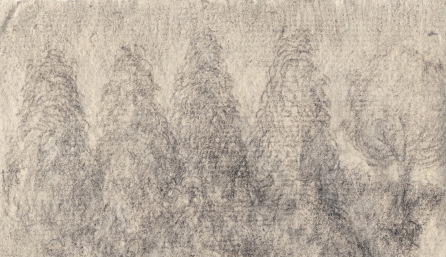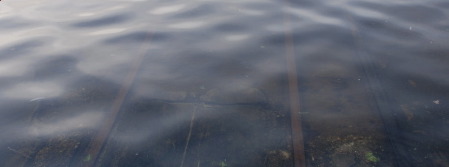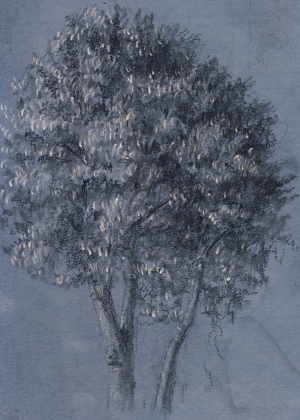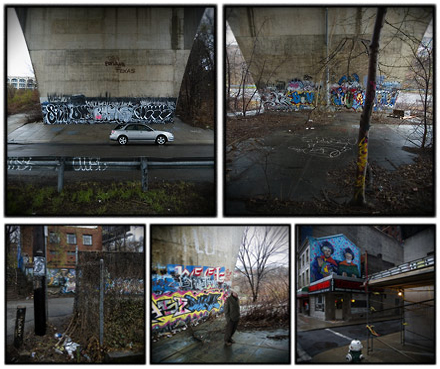Posted by Karl Zipser on June 6th, 2007

Painting
From Life vs.
From Photos

Traveling makes one aware of constraints of time and space. If I am in Paris today, but I won’t be tomorrow, I need to make the most of the present opportunities.
Painting in the same studio from day to day gives the impression of being in the same place. Working with the same types of materials over time gives a sense of continuity. I’m realizing how much this is an illusion, in the dimension of the art itself.
I can look at older work and enjoy it, but I can’t go back to the “place” I was when I made it — as much as I would like to sometimes. Depending on the type of work and the progress I am making, “old” can mean a year or two weeks. What I am doing on a given day defines a “place” that I found a path to from yesterday. I won’t be able to return most likely. I need to make the most of the place where I am at the moment, then move on.
On this journey an itinerary is not available. If I try to look back or too far ahead, I risk losing my way.
Posted by Karl Zipser on June 2nd, 2007

Painting
From Life vs.
From Photos

What is behind the illusion of transparency? How can artists make use of the effect? more… »
Posted by Karl Zipser on May 30th, 2007

Painting
From Life vs.
From Photos

Tinting paper is the fastest and least expensive ways to ‘make’ paper. One begins with a ready-made sheet, but then makes it one’s own. more… »
Posted by Karl Zipser on May 28th, 2007

Painting
From Life vs.
From Photos

Drawings, paintings and photographs all seem to be more or less static entities. With luck, they can last more or less unchanged for hundreds of years. It is therefore interesting, if disconcerting, when artworks appear to change drastically from day to day. more… »
Posted by Karl Zipser on April 30th, 2007

Painting
From Life vs.
From Photos
To be an artist today is to confront continual uncertainty. There is economic uncertainty, and also uncertainty of purpose. Modern society
seems to value art — art is preserved in museums, and purchased for large sums by “collectors.” And yet the typical artist is strangely disconnected from the top levels of success. Compare this with other professions. A competent pilot, trained at a good flight school, is more or less assured of a successful career. He or she might not get the opportunity to fly the biggest and newest commercial planes, or fancy jet fighters; but a stable career is a reasonable expectation, certainly compared to what an artist can hope for.
The profession of art has not always been so uncertain. For example, Cennino Cennini discusses the motivations of those entering the profession in his time (the 14th c.) “There are those who pursue it” he writes, “because of poverty and domestic need.” In 17th c. Holland, parents would encourage a talented son to pursue art as a profitable and respectable occupation. But nowadays, “poverty and domestic need” would better describe the results of becoming an artist, rather than causes for becoming one.
There is far more wealth in the world today to purchase art than in any time past. The difficult position of artist today is therefore something of a mystery.
If there is a general appreciation of art, and money to buy art, then why is it so difficult to fulfill the role of artist?
Posted by Karl Zipser on April 24th, 2007

Painting
From Life vs.
From Photos

Some graffiti and a mural in Pittsburgh, PA. The mural, lower right, is of Pgh’s 2 Andys – Andy Warhol and Andrew Carnegie – getting their hair and nails done. • The photos can be seen large on my blog
Recently, on my photography blog (The Landscapist), I posted a topic about graffiti – for purposes of this discussion, it might be helpful to read it.
The gist of it was simple – I had just returned from Pittsburgh, PA where the Graffiti Task Force had made what was being billed as the biggest graffiti bust in U.S. history. A lone graffiti artist with over 80 ‘tags’ to his credit is estimated to have caused over $500,000.00 in public and private property damages (keep in mind that, in this case, ‘public’ = bridge abutments and ‘private’ = abandoned structures).
Without going into great detail and for those of you not familiar with Pittsburgh, I will simply sate that the city is awash in visual eyesores which are the inevitable result of the severe economic devastation the area has experienced over the last quarter century. The city keeps trying to rise from the ashes of the end of big steel but it never quite seems to get it right.
The U.S. graffiti community considers Pittsburgh as a target-rich environment, quite possibly the largest ‘canvas’ in the U.S. Many travel here for the abundance of ‘opportunities’ the decaying public and private infrastructure present. The powers-that-be in the Pittsburgh body politic, to include law enforcement, have essentially declared this activity to be a scourge. The ‘miscreants’ need to be hunted down and punished with the full weight of the law.
No effort or, for that matter, consideration has been given to the notion of harnessing this situation for the enrichment of the community. No effort or consideration has been given to the fact that there is a difference between vandals with spray paint and artists with a voice. No effort or consideration has been given to the possibility of turning the area into the Sistine Chapel of the graffiti world.
That said, I am wondering what a diverse group of artists such as the one here on Art & Perception thinks about this situation.










